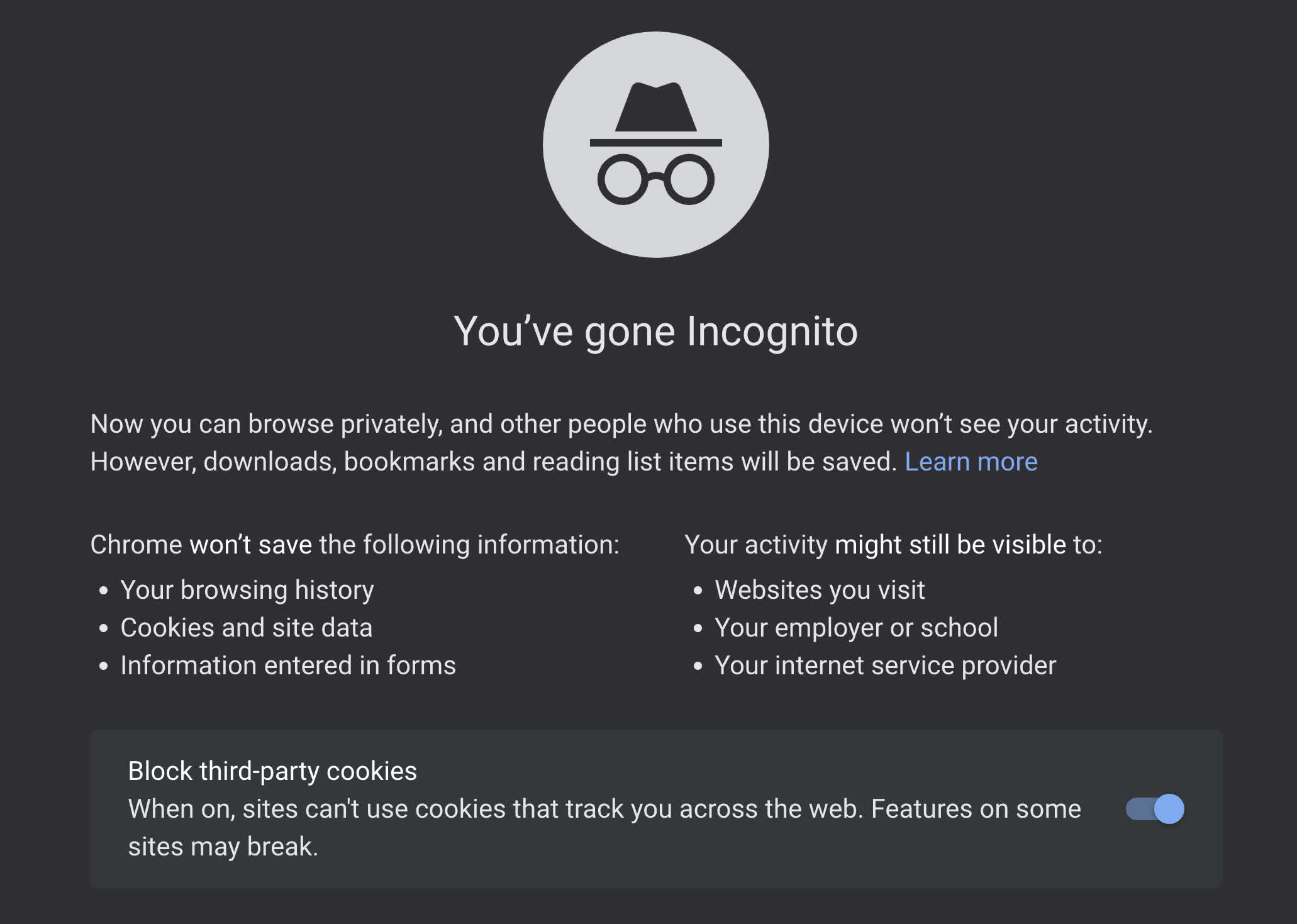What just happened? The fact that Chrome's incognito mode is pretty far from private is something most readers are aware of, but plenty of people think otherwise. That erroneous belief led to a class-action lawsuit in 2020, one that Google has said it is now ready to settle.
Florida resident William Byatt and California residents Chasom Brown and Maria Nguyen filed the lawsuit, writes Ars Technica. It accuses Google of violating wiretap laws and claims that sites using Google Analytics or Ad Manager collected information from browsers in incognito mode, including web page content, device data, and IP address. Google is also accused of taking Chrome users' private browsing data and associating it with existing user profiles.
Court documents from the case suggest that Google hasn't been in a hurry to correct misconceptions about Chrome's incognito mode. In 2018, one Google engineer said in a conversation "We need to stop calling it incognito and stop using a Spy Guy [the mascot with the hat and glasses] icon."
Elsewhere, a slide from a 2020 internal Google presentation stated that "Unless it is clearly disclosed that their activity may be trackable, receiving targeted ads or suggestions based on private mode [browsing] may erode trust." This slide cited a user survey on the incognito experience and suggested that Google was well aware of the feature's image among users.

A 2018 study showed 56.3% of respondents think incognito mode prevents Google from seeing their search history. Another 37 percent believe the privacy mode can prevent their employer from tracking their web browsing. The reality is that the mode merely automatically deletes a session's browsing history and cookies.
Google's main defense in the trial was to highlight the message that is displayed to Chrome users when incognito mode is activated: a warning that their activity "might still be visible to websites" that they visit.
In August, Judge Yvonne Gonzalez Rogers turned down Google's request for summary judgment, highlighting that the company failed to disclose to its users the ongoing data collection while they browsed in Incognito mode.
"Google's motion hinges on the idea that plaintiffs consented to Google collecting their data while they were browsing in private mode," Rogers ruled. "Because Google never explicitly told users that it does so, the Court cannot find as a matter of law that users explicitly consented to the at-issue data collection."
Google and the plaintiffs have now agreed to terms that will see the case dismissed once the court gives its final approval by the end of February. Neither side has made the details of the settlement public, though the complaint originally asked for $5 billion.
